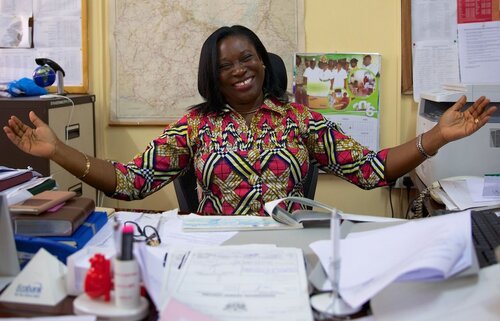UHC2030 hosted its annual UHC Day parliamentarian town hall to...
15 May 2017
Commitment to take action for universal health coverage

We are reaching an exciting moment in our transformation process from IHP+.
Signing the Global Compact is a formal requirement for partners interested to join UHC2030, and a great demonstration of commitment to take action to make progress towards universal health coverage.
Signing the Global Compact means our current and future partners - including governments, international organisations, philanthropic foundations, civil society and the private sector - commit to work together to accelerate progress towards UHC, through building equitable, resilient and sustainable health systems. UHC2030 provides a platform to encourage greater coordination and collaboration to build a movement towards meeting our goal of universal health coverage.
Here is an extract from the UHC2030 Global Compact.
“In our efforts to strengthen health systems and achieve UHC, we collectively subscribe to the following key principles to guide our action:
- Leaving no one behind: a commitment to equity, non-discrimination and a rights-based approach
- Transparency and accountability for results
- Evidence-based national strategies and leadership, with government stewardship to ensure availability, accessibility, acceptability and quality of service delivery
- Making health systems everybody’s business – with engagement of citizens, communities, civil society and private sector
- International cooperation based on mutual learning across countries, regardless of development status and progress in achieving UHC, and based on development effectiveness principles.”
Read the whole UHC2030 Global Compact here.
Countries and organizations championing UHC are showing they are keen to be meaningfully committed and involved to form a strong UHC movement.
“We in South Africa are very much determined to be part of UHC2030. What we think should happen, not only in South Africa but around the whole world, is to form a big movement like the one that was formed to fight HIV and AIDS,” said Hon. Dr. Aaron Motsoaledi, Minister of Health, South Africa.
“Thailand values South-South Cooperation and peer learning across countries, and would like to see them as the main mechanisms of the new UHC2030. We need strong collective actions to achieve UHC2030. We should build collective trust through reducing our self interest to the minimum and put public interest as the top priority” said Hon. Prof. Piyasakol Sakolsatayadorn, Minister of Public Health, Thailand.
“What I feel about the partnership [UHC2030] is that it is not the work of one person or one organization to do this. It is unique that various partners can work together to bring their knowledge, their intelligence, and evidence from country levels and share with others about how you can work better to improve the health of the people,” said Kaorsar Afsana from BRAC in Bangladesh.
The Rockefeller Foundation also demonstrated its commitment to support UHC2030 announcing in December 2016 that it will become a formal signatory to the new Global Compact. “The Rockefeller Foundation is proud to announce a nearly $1.5 million commitment to the International Health Partnership for UHC 2030, a vital new initiative to drive our collective vision for health for all,” said Ms. Natalie Phaholyothin, representative for Dr. Judith Rodin, President of the Rockefeller Foundation.
Contact us
Countries and organisations interested to join UHC2030 can contact the Secretariat based in WHO and the World Bank info@UHC2030.net
More UHC2030 News
A global health financing emergency threatens progress toward...
UHC2030 at HSR2024: Advancing equity and inclusion in health systems through civil society knowledge
UHC2030, in collaboration with the SUPPORT-SYSTEMS research...
